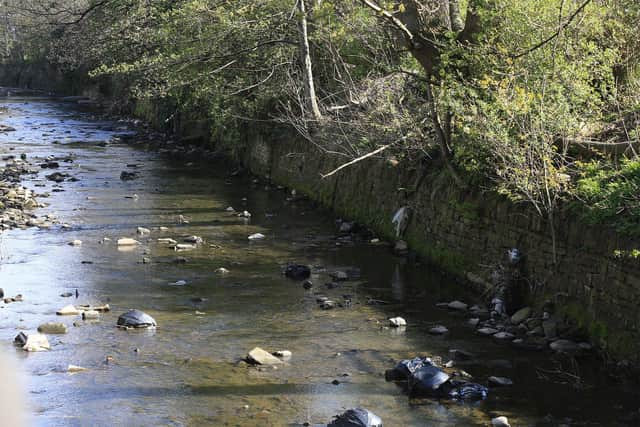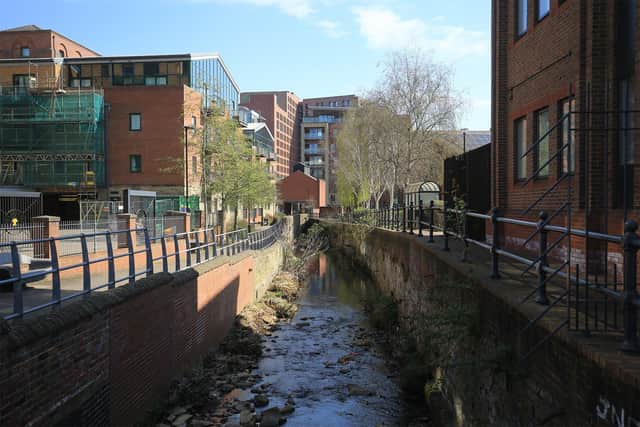Raw sewage and human effluent discharged into Sheffield's rivers and streams, report reveals
and live on Freeview channel 276
Rivers and streams in Sheffield were pumped with raw human effluent on numerous occasions last year, according to data published by the Environmental Agency.
Untreated waste poured into one stream that flows into the River Sheaf in Sheffield for a total of 1,099 hours via sewer overflow pipes that should only be used under exceptional circumstances such as cases of extreme weather to stop sewage backing up into homes if the systems become overwhelmed.
Advertisement
Hide AdAdvertisement
Hide AdThe data has been published for the first time as a result of pressure on the EA, water companies and the government over the scale of sewage pollution in rivers.


Michelle Walker, deputy technical director of The Rivers Trust, said: “It’s good to finally see this data in the public domain and in particular the significant increase in the number of overflows being monitored over the last four years. Despite that, we are a long way from it being understandable and accessible to the general public, so we will be updating The Rivers Trust national sewage map with the new data in the next few days.
"Every river has unmapped overflows in addition to the 14,630 which are declared, and we are keen to make use of citizen science to locate those and let water companies and the environment agency know where they should direct their action.
“Whilst we know we can’t make a direct comparison to last year’s EDM data due to the 50 per cent increase in the number of overflows being monitored, the data raises alarm bells. If storm overflows work as designed, they will discharge less than 20 times per year – when there has been extreme rainfall. When that happens, SOs prevent our homes and businesses being flooded, protecting lives and livelihoods.”
Advertisement
Hide AdAdvertisement
Hide AdThe 2020 data indicates that almost 1 in 5 overflows across England are discharging more than 60 times per year, a number which is supposed to trigger an EA investigation.


Ms Walker added: “This is a staggering statistic, and The Rivers Trust is now calling for greater transparency and publication of real-time monitoring of overflows which are discharging more than 20 times per year so the appropriate measures can be taken to improve the situation.
“We’ve seen an increase in the recreational use of rivers during the pandemic, and this is likely to continue into the summer under current travel restrictions. Real-time data is only linked to bathing water sites in England. This works well at the coast, but with only one bathing water site declared on a river (at Ilkley), we want to see more real-time data being made available so that more river users, not just swimmers, can be informed of risks.”
Waste from households is transported to a sewage treatment plant, where it is cleaned to an environmentally safe standard before being released or re-used.
Advertisement
Hide AdAdvertisement
Hide AdCountries are legally obliged to treat sewage before it is released into waterways.
Discharges of untreated human waste are permitted only in exceptional circumstances, for example, after extreme rainfall, the European court of justice has ruled.
According to the Rivers Trust, some combined sewer overflows have discharged raw sewage into rivers when it hasn't rained for days.